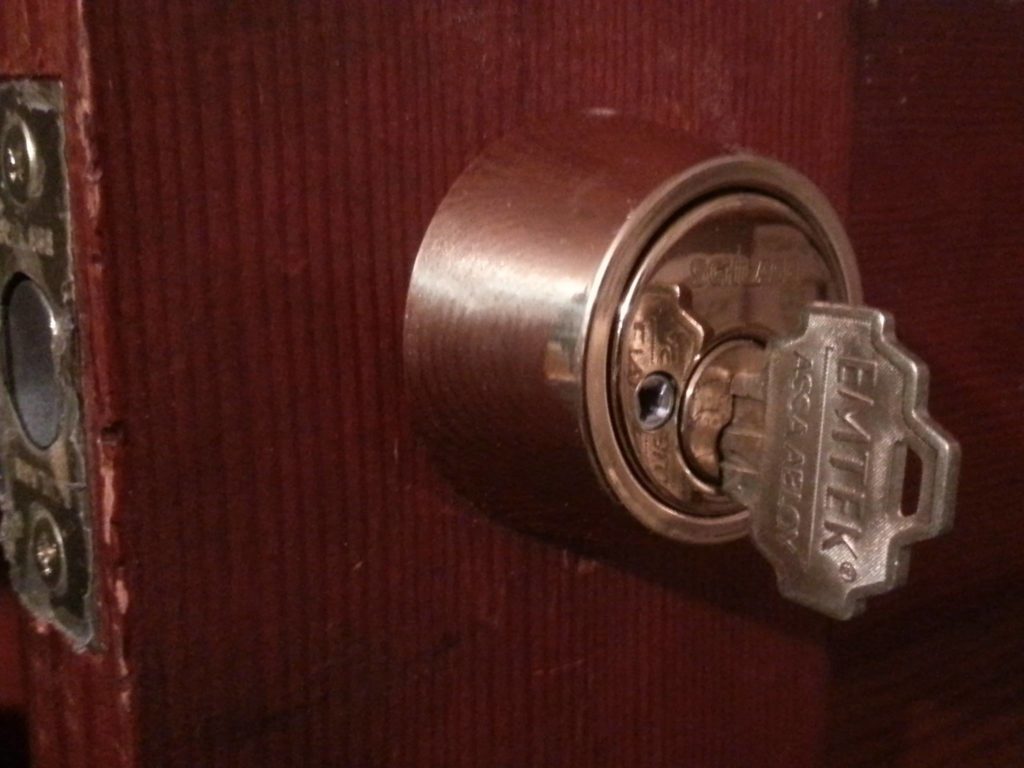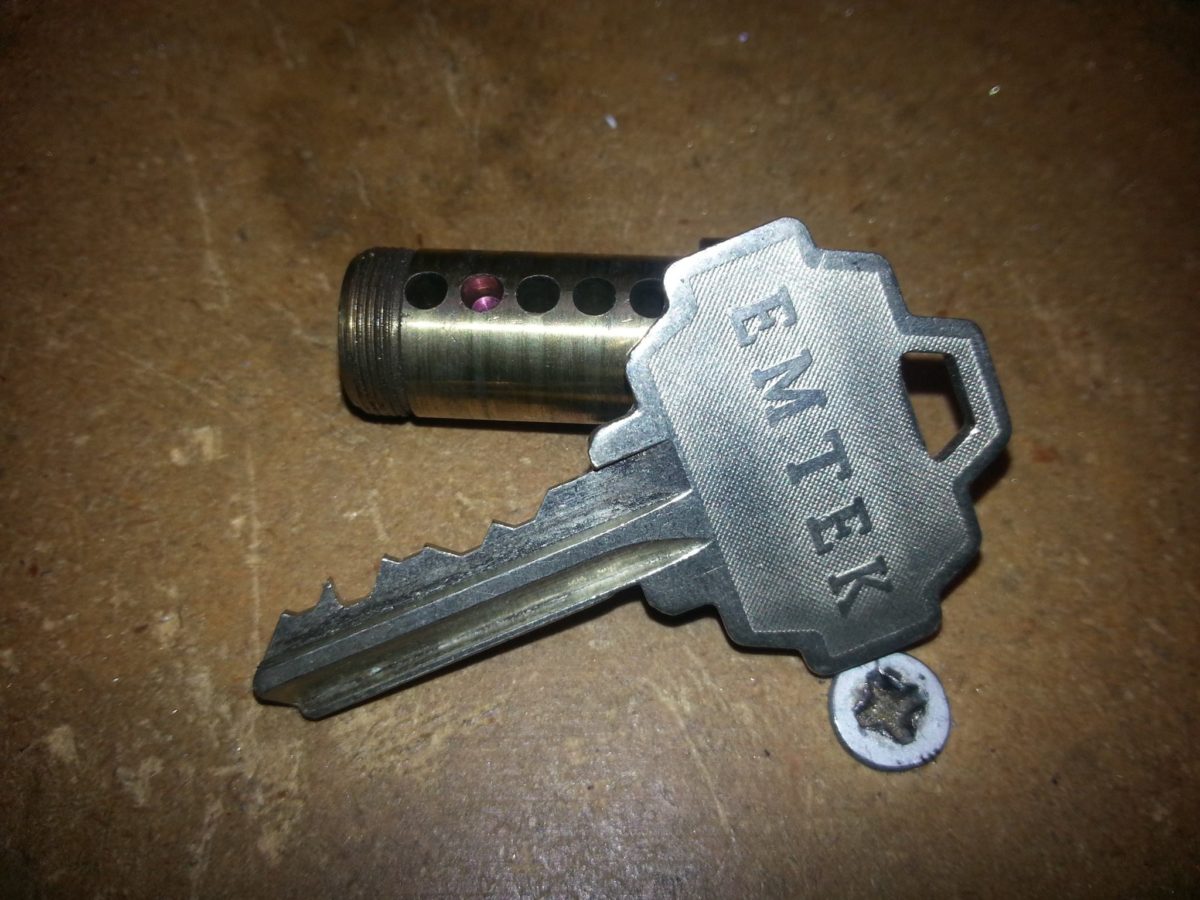I was called to a house this week to change the locks, and the homeowner had a double-cylinder lock on the door leading down into the basement. I’ve written before about the danger of having double-cylinder deadbolt locks on exterior doors. Because the basement had exterior doors, this one at the top of the stairs was considered an egress door and wasn’t supposed to have that kind of lock on it. Fire code and good sense forbid it. I told the homeowner I could replace her dangerous lock or not touch it at all, but that I wouldn’t rekey it and then put it back on her door. She didn’t like those options, so I came up with a different solution.
For the upstairs side of the door, I made a key that, once inserted, couldn’t be pulled out of the lock. It would turn the cylinder and throw or retract the bolt like a thumbturn would, but it just looked like a lock with a key in it. The good thing about this solution was that without having to buy a new lock, she could now secure that door and not ever have to worry about being locked into the house during a fire.

But there are several reasons that it wasn’t a great solution:
-It’s not as secure as a real single-cylinder deadbolt; leaving a key in the inside half of a double-cylinder deadbolt makes the lock susceptible to a certain kind of bypass. (I figured that this was not a big problem on the basement door in question, as an intruder would first have to get through an exterior door to reach that one.)
-Now that deadbolt has a key permanently sticking out of it. It’s kind of a hackneyed way of fixing a problem. I chose an Emtek key, which has a big bow that’s easier to grab than a regular key. Still, it’s makeshift and unprofessional. I’d do it in my own home but I shouldn’t have fixed a customer’s house up like that.
-I’m also worried about someone tripping and smashing his or head right on that key. It’s highly unlikely, but still possible. I wonder if I’d be to blame if that happened. I could get sued and lose my key stock, my 1997 Chevy Astro van, everything. This is the kind of thing that keeps me up nights.
Despite all my criticisms of this method, this is really a perfect solution for someone who 1) wants to convert a double-cylinder deadbolt to a single-cylinder deadbolt, 2) is very stingy, 3) isn’t terribly concerned about home security, 4) doesn’t care how things look, and 5) isn’t worried about having sharp objects protruding from walls and doors.
Here’s a photo of how I altered the key so it would become fixed in the double-cylinder deadbolt. Note how I squared off the fourth cut in this key. I removed all but one pin stack, but this would have worked just as well by modifying the existing key.

 Commercial
Commercial 


